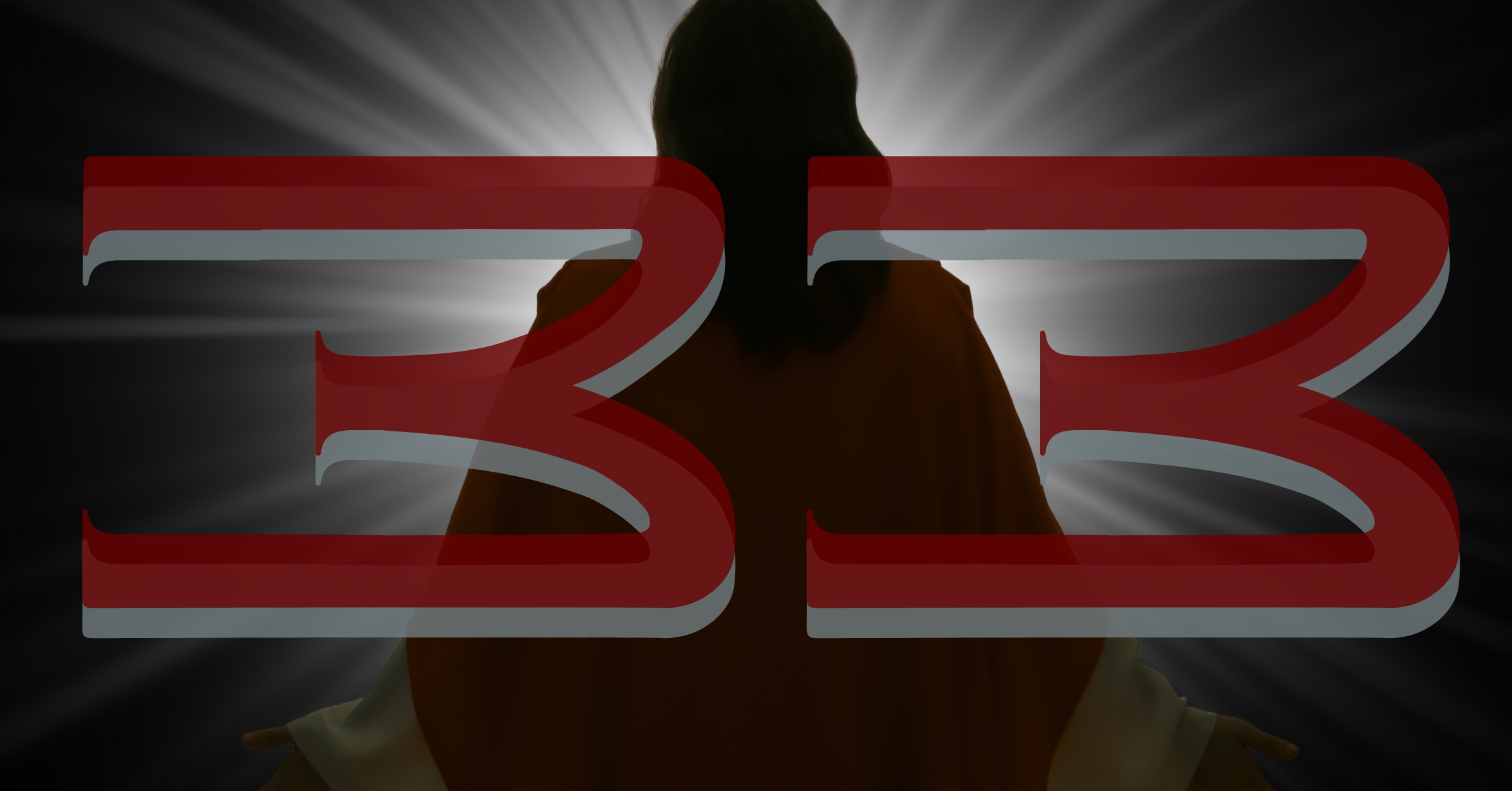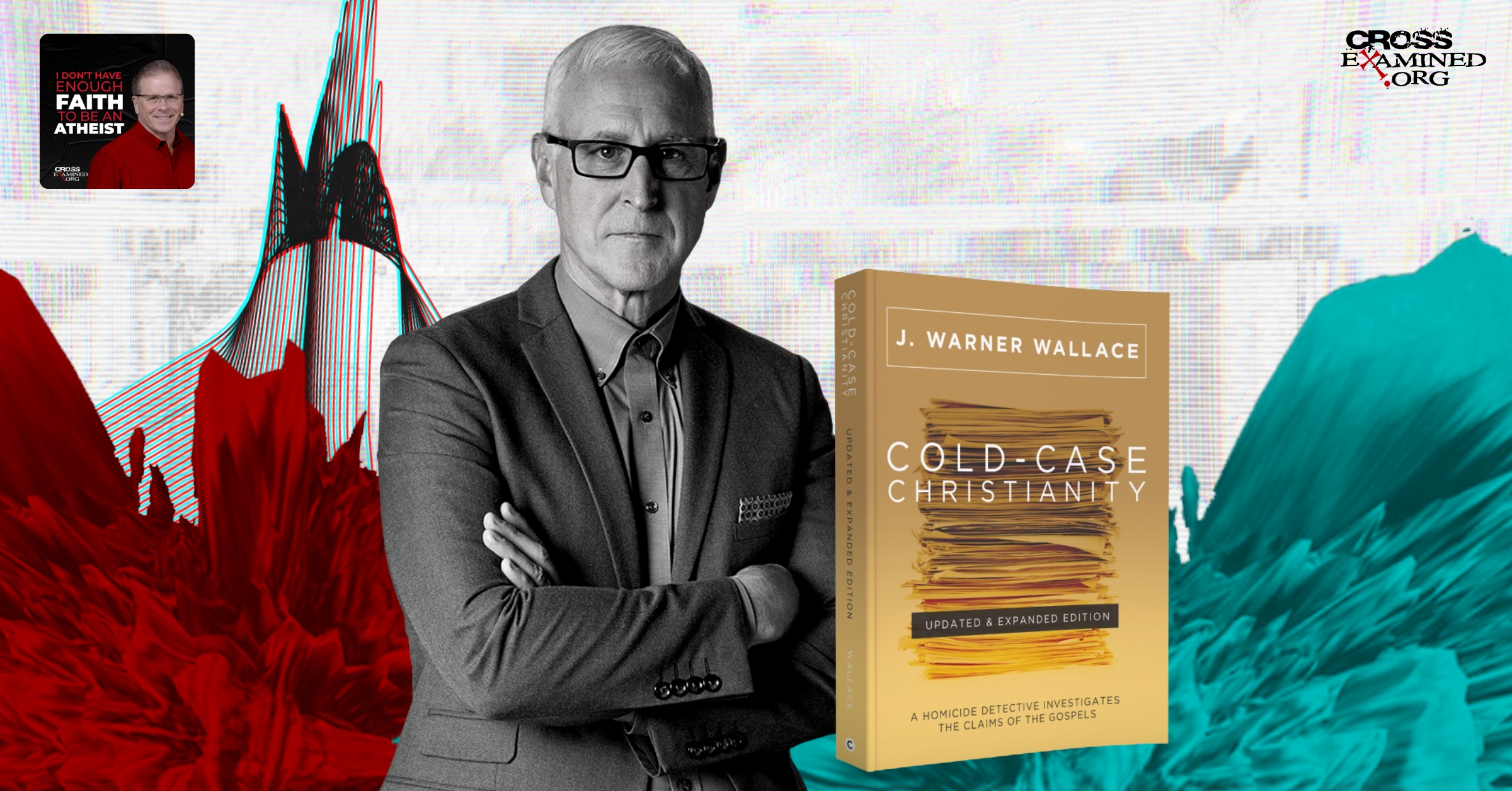The Evidence For Jesus’ Resurrection, Part 10: Conclusion
If you’ve taken the time to read through this entire series, I commend you. The resurrection of Jesus is the most important event in human history. If it occurred, the Christian worldview is true. If it did not occur, then we need to search for worldview truth elsewhere. However, we saw throughout the last 9 blog posts that the historical evidence for Jesus’ resurrection is shockingly strong.
You know, there have been times when I myself gave refuting the resurrection a shot. But I could never think of a naturalistic theory other than ones I refuted in part 7 of this series. And according to Dr. Habermas, scholars are the same way. The fact that non-Christian historians admit the 5 minimal facts, and have basically just given up trying to explain them only bolsters my confidence in the resurrection’s historicity.
A Message To The Non-Christian Reader
If you were a non-Christian who became convinced by these arguments in this series of articles that Jesus has risen, I want you to know that you can’t just stop here. It isn’t enough to acknowledge that Christianity is true, you have to place your trust in Christ for salvation. This is the difference between “Belief That” and “Belief In.” Those aren’t my terms; I got those from Frank Turek and J. Warner Wallace. “Belief That” is an acknowledgment that God exists, that God is a Trinity, that Jesus died and rose from the dead, etc. While “Belief That” is certainly a necessary condition for obtaining salvation (see Hebrews 11:6), it is not a sufficient condition. After all, James 2:19 says that even the devil believes that God exists yet Revelation 20:10 says he’s going to Hell! Acknowledging that Christianity is true isn’t enough to get you into Heaven. You need belief that and believe in. What is “e.g. In”? Belief In is when you act on what you know. It’s when you place your trust (the actual definition of faith, by the way) in Christ for your salvation. It’s when you receive Christ as your personal Lord and Savior and devote your life to serving Him.
Lee Strobel explains this in mathematical terms. Believe + Receive = Become. Become what? A child of God (see John 1:12 – “To all who received him, he gave the right to be called children of God.”). “Belief That” is the first part of the equation. “Belief In” is the second part. For years, I had only the first part of the equation until God wore me down and brought me to my knees.
You’re a sinner according to Romans 3:23; “All have sinned and fallen short of the glory of God.” The “wages of sin is death” (Romans 6:23a) because God is holy and just (Psalm 9:7-8, Psalm 9:16, Psalm 10, Psalm 11:16, Psalm 103:6). But God isn’t only just; He is also loving. In fact, 1 John 4:8 says that love is a vital part of who God is.“God is love”. Because God’s very nature is love, He “so loved the world that he gave his one and only son, so that whoever believes in him will not perish, but have everlasting life.” (John 3:16). God loves “the world.” Are you a part of the world? If you are, then this verse applies to you. God loves you and gave his son Jesus to die on the cross to atone for your sins (cf. 1 Peter 3:18). Jesus was crucified in order to experience the wrath of God. He experienced God’s wrath so that you wouldn’t have to. God’s word promises that if you place your faith in Christ, He will be registered as your substitute. His blood will cover you, and God will look at you as though you had never sinned. He will see you the same way he sees Jesus; as a son who is without sin. This is the gift that God offers you. It’s a free gift. You don’t have to work for it. “The gift of God is eternal life in Christ Jesus our Lord.” (Romans 6:23b). Ephesians 2:8-9 says “For by grace you have been saved, through faith, and this is not of yourselves. It is a gift from God. Not by works lest anyone should boast.”
Will you receive this gift? Will you receive the free gift of salvation that God offers you? If so, call upon God and ask Him to save you. You don’t need a special “Sinner’s Prayer.” God knows your heart. Just call out to him. “For all who call upon the name of The Lord will be saved” (Romans 10:13). Your prayer doesn’t have to be eloquent or scripted. It can be as simple as “God, I now know that this Christianity stuff is true. Now that I’m convinced, I want you to save me. Please give me salvation in Jesus’ name. Amen.”
If you have received Christ as your personal Lord and Savior, I’d love to hear from you. Send me an e-mail at CerebralFaith@Gmail.com to tell me about your decision. I’d love to know that typing all these blog posts made an impact on someone’s eternity. Also, I’d be happy to talk with you about finding a church to attend.
A Message To The Christian Reader
For readers who are already Christians, I hope you study these articles or the e-book adaption soon to come out and master these arguments so that you will “always be ready to give a defense to anyone who asks you to give a reason for the hope that you have.” (1 Peter 3:15) And be able to “demolish arguments and any pretension that sets itself up against the knowledge of God. Taking captive every thought to make it obedient to Christ.” (2 Corinthians 10:5). One of my goals as an apologist is to equip my fellow believers like you to be able to give people the reasons to believe that Christianity is true. Not every unbeliever will take the time to read an apologetics book or even a single article. Either because they just don’t like to read, or maybe they don’t know that good answers to their questions are available. However, they may be more than happy to engage in a conversation with you about God. You may be the only apologist they ever hear, or you may be the first one they ever hear.
You may be thinking “This is interesting and all, but I’m just not smart enough to be an apologist. Don’t you have to get Ph? Ds and spend years in seminary?” Let me tell you a story: I can still remember my first exposure to Christian Apologetics. I was 18. The year was 2010. I had been wrestling with doubts for months, but I didn’t tell anyone, not because I was ashamed of my doubts, but because I was worried that I would spread them around like the common cold if I expressed them. One night, while I was scrolling my timeline on Facebook, one of my Facebook friends had posted a link to a YouTube video. It was the documentary adaption of Lee Strobel’s “The Case For A Creator.” I was blown away at what I was seeing and hearing; several credentialed scientists were talking about scientific evidence for the existence of a transcendent Creator (from the origin of the universe, the cosmic and local fine-tuning, the information content in DNA, etc.). My faith was restored. I bought Strobel’s books and read them. And although the evidence from science and history were ,”, I wasn’t able to articulate the arguments very well because I had only gotten the gist on my first read. I would try to share my faith with non-believers online, and they would pelter me with questions and objections that I couldn’t answer. When I prayed for their souls, I prayed that God would send someone to them who could walk them through the evidence for His existence and the reliability of The Bible.
One day, after I prayed for these atheists a few times, I prayed once more “Lord, please lead these people to salvation. Lead them to a saving relationship with yourself. If they need reasons to believe, please send someone who can articulate the reasons for them.” And then I felt The Holy Spirit say to me “I want you to give them the reasons.” I was confused. I was terrible at articulating the Cosmological Argument or the case for the resurrection. How could God want me to be the one? The very next day, I was scrolling my Facebook timeline, and I saw a captioned image that said; “God doesn’t call the qualified. He qualifies the called.” That’s when I realized that although I wasn’t currently equipped to deal with the challenges the non-believers I tried to witness to brought my way, I could, through rigorous study and training, become equipped. If God really wanted me to be a Christian Apologist, then he would help me learn the stuff I needed to skillfully contend for the faith (Jude verse 3). I read Lee Strobel’s books cover-to-cover several times, trying to remember what I read. My Mom helped me by getting me several books on Christian Apologetics as presents for my 19th birthday. Those books were “On Guard: Defending Your Faith With Reason and Precision” by William Lane Craig, “Who Is Agent X: Proving Science and Logic Show It’s More Rational To Think God Exists” by Neil Mammen, “The Holman Quicksource Guide To Christian Apologetics” by Doug Powell, “I Don’t Have Enough Faith To Be An Atheist” by Frank Turek and Norman Geisler, “Intelligent Design 101” by multiple authors, “The Apologetics Study Bible”, and “The Case For Faith” by Lee Strobel. I didn’t just read these books; I studied them. I read them cover-to-cover multiple times. My copy of Tureks and Geisler’s book is actually starting to fall apart due to overuse.
I joined a Facebook group called “Christian Apologetics Alliance,” and I would frequently ask questions that had either occurred to me or was posed to me by someone I was dialoguing with on the internet. I downloaded lectures and debates from Apologetics315.com to my MP3 Player and would listen to these lectures over and over while I did housework and yard work. Later in my 19th year, I attended The National Conference On Christian Apologetics so I could learn even more. I bought Hugh Ross’ book “The Creator and The Cosmos” and Josh McDowell’s “The New Evidence That Demands A Verdict” at that conference. Over the years, I’ve bought many different books by many different authors on theology and apologetics, and I have read many of them multiple times.
In 2012, I decided to start a blog to share what I was learning; Cerebral Faith (www.cerebralfaith.blogspot.com). Since then, I’ve written nearly 500 posts on a variety of different topics; arguments for God’s existence, the historicity of Jesus’ resurrection, the problem of evil, the Arminianism/Calvinism debate, the creation/evolution debate, and others.
As of this writing, I confess that I have never been to seminary (though I hope to be able to attend someday). All of my knowledge comes from the self-taught method, with the mindset that I was going to learn and master apologetics no matter what. I was hell-bent on improving my skills. Through hard work, discipline, and determination, you too can become a skillful defender of the faith. The knowledge isn’t locked away in universities. You can gain it simply by studying the books. However, it won’t be easy, and it won’t come quickly. You will have to be dedicated to learning this material, but it’s worth it. It is so satisfying to be able to go toe to toe with unbelievers.
J. Warner Wallace, in a talk called “Call Of Duty” given at 2017’s National Conference On Christian Apologetics, said; “We don’t need another million dollar apologist. We need a million one dollar apologists.”[1] What is a million dollar apologist? What is a one dollar apologist? My friend Zachary Lawson gave this helpful analogy: A million dollar apologist is like Led Zepplin while a dollar apologist is like your friend who can play the guitar really well. A million dollar apologist is someone who has many letters after his name and probably belongs to a few philosophy clubs, and they are experts in their respective fields; people like Dr. William Lane Craig, Dr. Alvin Plantinga, Dr. Gary Habermas, Dr. Michael Licona, Dr. Craig Blomberg, and Dr. Hugh Ross would fall under this category. One Dollar Apologists would be people like me; who do a lot of reading and then write about what they learned. Or they’d be people who didn’t get a degree in a field relevant to apologetics (like philosophy, physics, ancient near eastern culture) but got a degree in apologetics itself.
I don’t mind being called a “One Dollar Apologist.” I don’t find it demeaning or insulting. I believe we need both the million dollar apologists like Craig and Plantinga, but we also need One Dollar Apologists.
This world is full of people who don’t know Jesus. A lot of them don’t believe simply because they don’t want to. They are in rebellion against their Creator. However, there are those who are earnestly searching for the truth, who are open to following the evidence wherever it leads, and if asked “If you knew Christianity were true, would you become a Christian?” would answer with a resounding “Yes.” We need to be equipped to reach these people. Don’t be like I was. Don’t pray “God, please send someone like Evan Minton who can answer all their objections.” God wants you to be that person. Jesus said, “Go, therefore, and make disciples of all nations” (Matthew 28:19). We are all called to share our faith, and since in many cases, questions will arise, it logically entails that we are all called to defend our faith as well.
I’ve heard way too many stories of people either going to their pastor, their parents, or their Christian friends with tough questions about and even arguments against Christianity, and honestly wanted to know if they could be successfully answered. These people were either rebuked for questioning The Bible, told “You just need to pray and God will give you more faith”, or were simply told that they didn’t know how to respond. Their doubts grew until they finally ended up leaving Christianity entirely, often once they went to a university. You may at some point have someone like this attend your church. Your pastor may not be equipped to deal with the challenges he brings up. But if you take the time to study this blog series/e-book, and some of the other resources I’ve mentioned (e.g my own blog, and some of the books I’ve mentioned reading in the preceding paragraphs), then you will be equipped to deal with them. You will be the friendly neighborhood apologist, and people will start to take notice and will begin coming to you when they have questions. I have often joked that I’m “The Bible Answer Man” of my family. My friends and family come to me with questions all the time. Questions like “What happens to a person who commits suicide?”, “Can people lose their salvation or not?”, “Why did Jesus say He didn’t know the time of His second coming if He’s God and God is omniscient?” are a few examples.
No, you don’t have to go to seminary to get the skills you need to defend your faith. You don’t need to have an IQ of 130. You just need to study hard, and you should. This world can never have too many apologists. It will be well worth the time and effort you pour into it, I promise you.
C.S Lewis put it well: “If all the world were Christian, it might not matter if all the world were uneducated. But, as it is, a cultural life will exist outside the Church whether it exists inside or not. To be ignorant and simple now — not to be able to meet the enemies on their own ground — would be to throw down our weapons, and to betray our uneducated brethren who have, under God, no defense but us against the intellectual attacks of the heathen. Good philosophy must exist, if for no other reason, because bad philosophy needs to be answered.”[2]
Let us be salt and light in this skeptical era.
Notes
[1] This talk can be downloaded as an MP3 file at http://www.catapes.com/viewresults.cfm?cid=363
[2] C.S. Lewis, The Weight of Glory and Other Addresses
Original Blog Source: http://bit.ly/2M2gjsv












Leave a Reply
Want to join the discussion?Feel free to contribute!